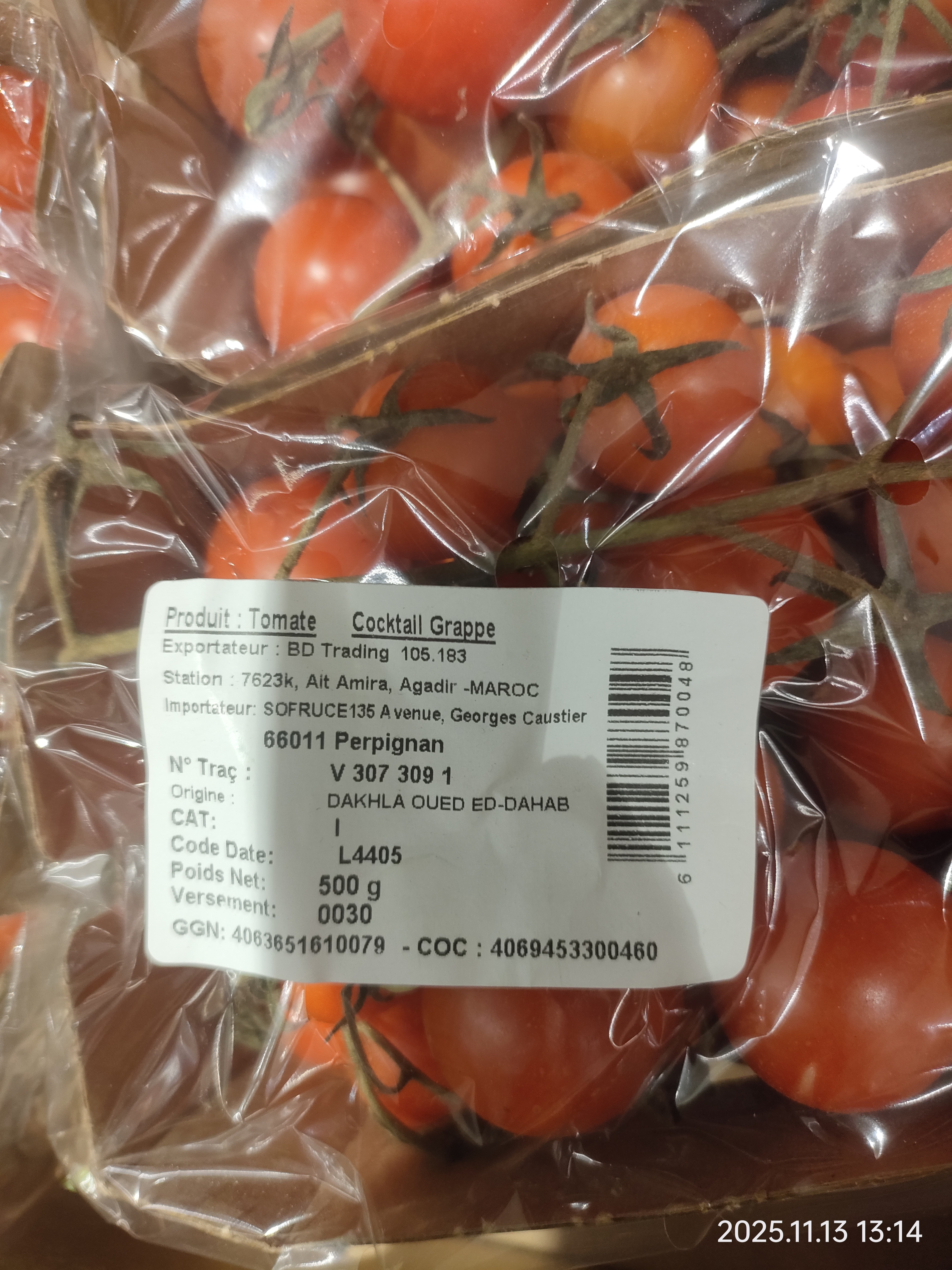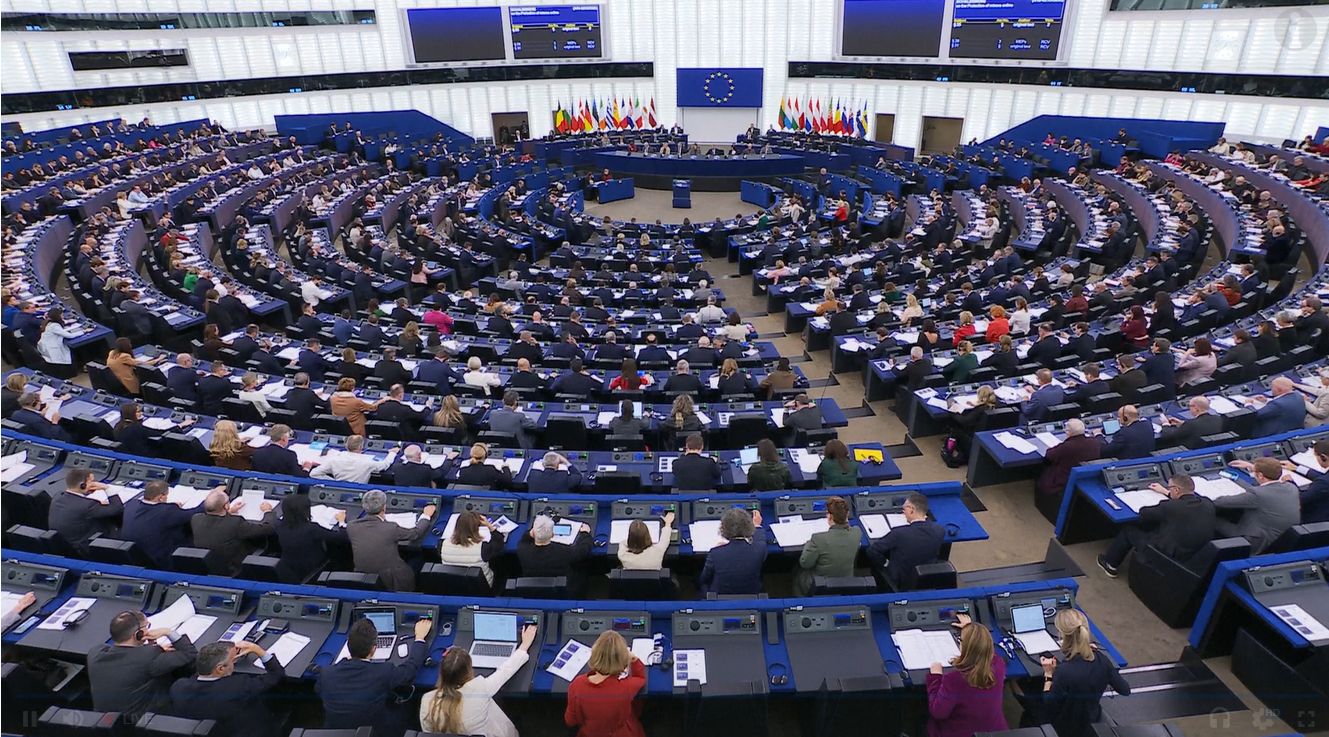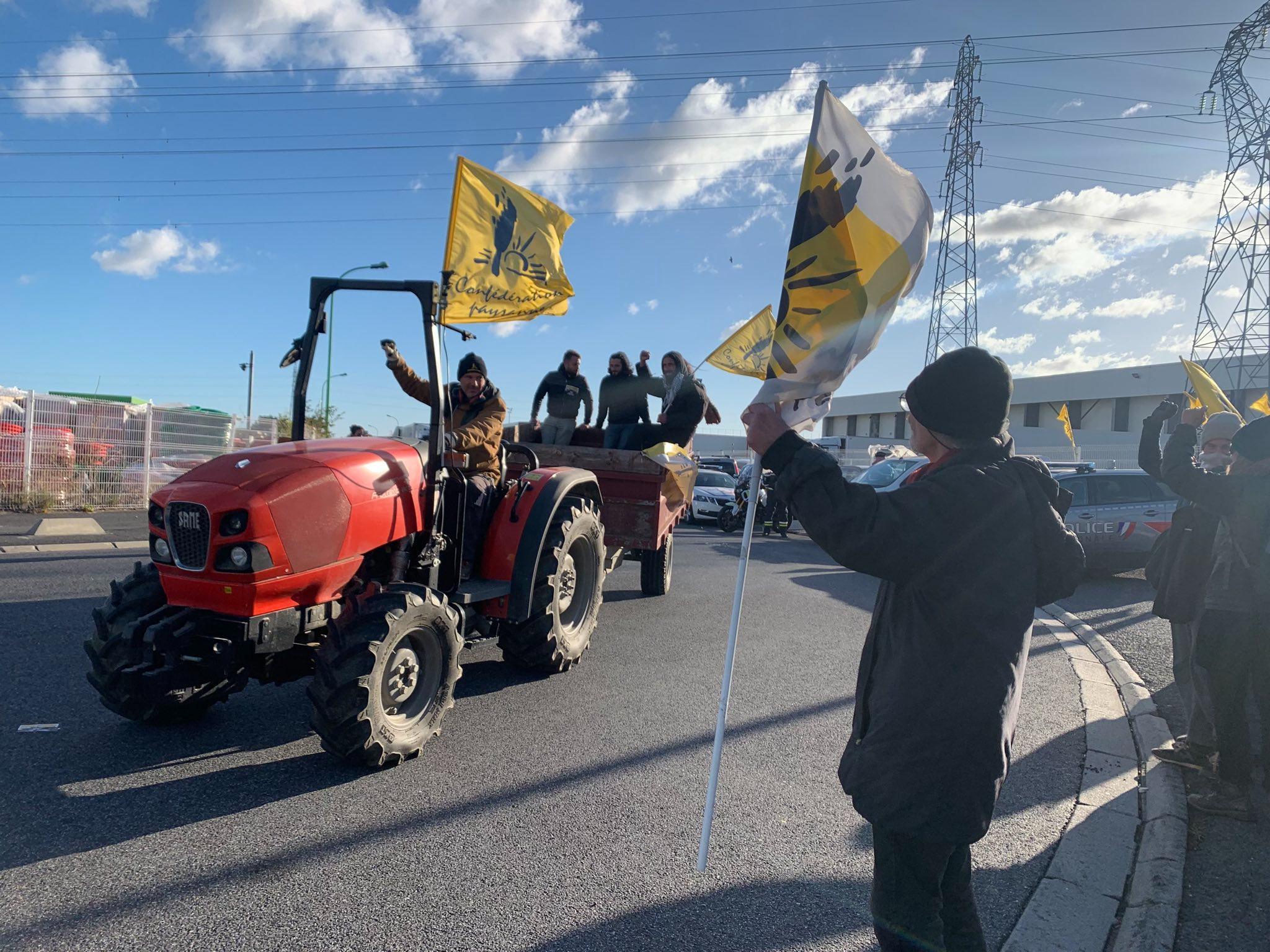
Growing pressure on EU–Morocco trade deal as French farmers today launch legal steps and storm Azura’s entry point for Western Sahara produce in Perpignan.
In an extraordinary escalation of farmer mobilisation in France, around 60 members of the French farmer union Confédération Paysanne stormed and blocked the Azura logistics hub in Perpignan this morning, disrupting operations at one of the EU’s main entry points for fruit and vegetables originating from occupied Western Sahara.
According to L’Indépendant, farmers entered the Saint-Charles logistics platform “by force”, halting activity and demanding an end to what they describe as “illegal and unfair competition” from produce grown in occupied Western Sahara.
The target of the action, the Franco-Moroccan agribusiness group Azura, is one of the largest importers of fruits and vegetables grown in the part of Western Sahara that is under Moroccan occupation. The company also owns farms in the territory, and has recently announced plans to invest around € 18.5 million to increase its productivity there.
The French farmers accuse Azura of placing products on the EU market labelled as ‘Morocco’, despite their origin being outside Morocco’s internationally recognised borders.
In a statement published today, the Confédération Paysanne denounced the dual injustice of such imports: they violate Saharawi rights while undercutting European farmers.
“These imports arrive in France at lower prices and compete with our own production by pushing down prices and standards. Social and environmental norms are practically non-existent in these territories,” the union stated.
The statement emphasises that multinational agribusinesses operating in Western Sahara “plunder resources without any economic benefit for the Saharawi people.”
In parallel with the blockade, the Confédération Paysanne announced it has filed a civil lawsuit against Azura and its subsidiary Maraissa for alleged tax fraud on import duties, adding a legal dimension to today’s physical action.
The action comes at a critical moment, as MEPs in Brussels are scrutinising the new version of the EU–Morocco trade deal, provisionally applied since October. A vote on the labeling regime is to take place this afternoon.
The Confédération Paysanne sharply criticised the agreement, stating that:
- It includes Western Sahara despite its separate and distinct status.
- It was negotiated “in opacity” by the European Commission.
- It introduces new, legally baseless labelling rules, mirroring Morocco’s self-declared “regions of origin”.
The Confédération Paysanne reiterated its call for the EU to abandon harmful free-trade logic in favour of Minimum Entry Prices (PME/PMDE) at EU borders.
Such tools, they argue, protect farmers’ incomes and sovereignty - whether they are from Europe, Morocco, or Western Sahara - and prevent trading systems from being exploited as “instruments of domination” over peoples and territories.
“Blocking one of France’s major fruit-and-vegetable logistics hubs sends a clear signal: European farmers are increasingly unwilling to tolerate imports they see as illegal, unfair, or complicit in the occupation of Western Sahara”, says Sara Eyckmans from Western Sahara Resource Watch.
With legal action underway, MEPs deeply divided over the EU–Morocco deal, and the European Commission facing growing criticism over its handling of Western Sahara labelling rules, today’s events in Perpignan mark a significant escalation in a long-running controversy.
The Confédération Paysanne has announced it will decide on further actions - on the ground and in Brussels. See also statement on Twitter/X.
Spanish small scale farmers association COAG has also mobilised heavily against Azura and its labelling practices, denouncing the practice to Spanish consumer authorities.
WSRW wrote yesterday that Azura has issued extreme political support to Morocco’s illegal occupation of the territory.
Somewhat paradoxically, Azura claims to be certified by IFS Food standard, which is supposed to be a guarantee against fraudulent country of origin declarations. IFS Food has not responded to WSRW as to how this could be possible.

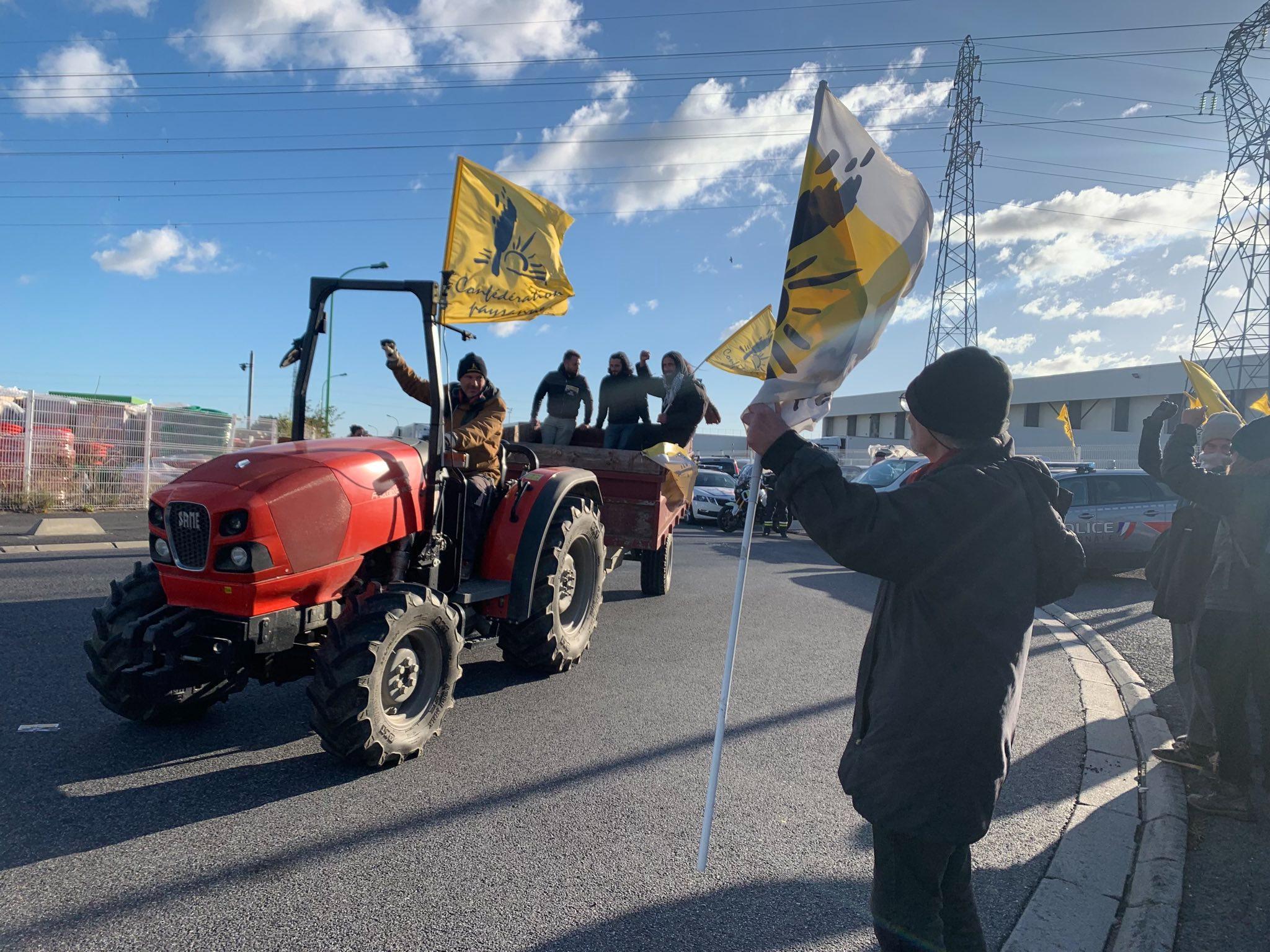
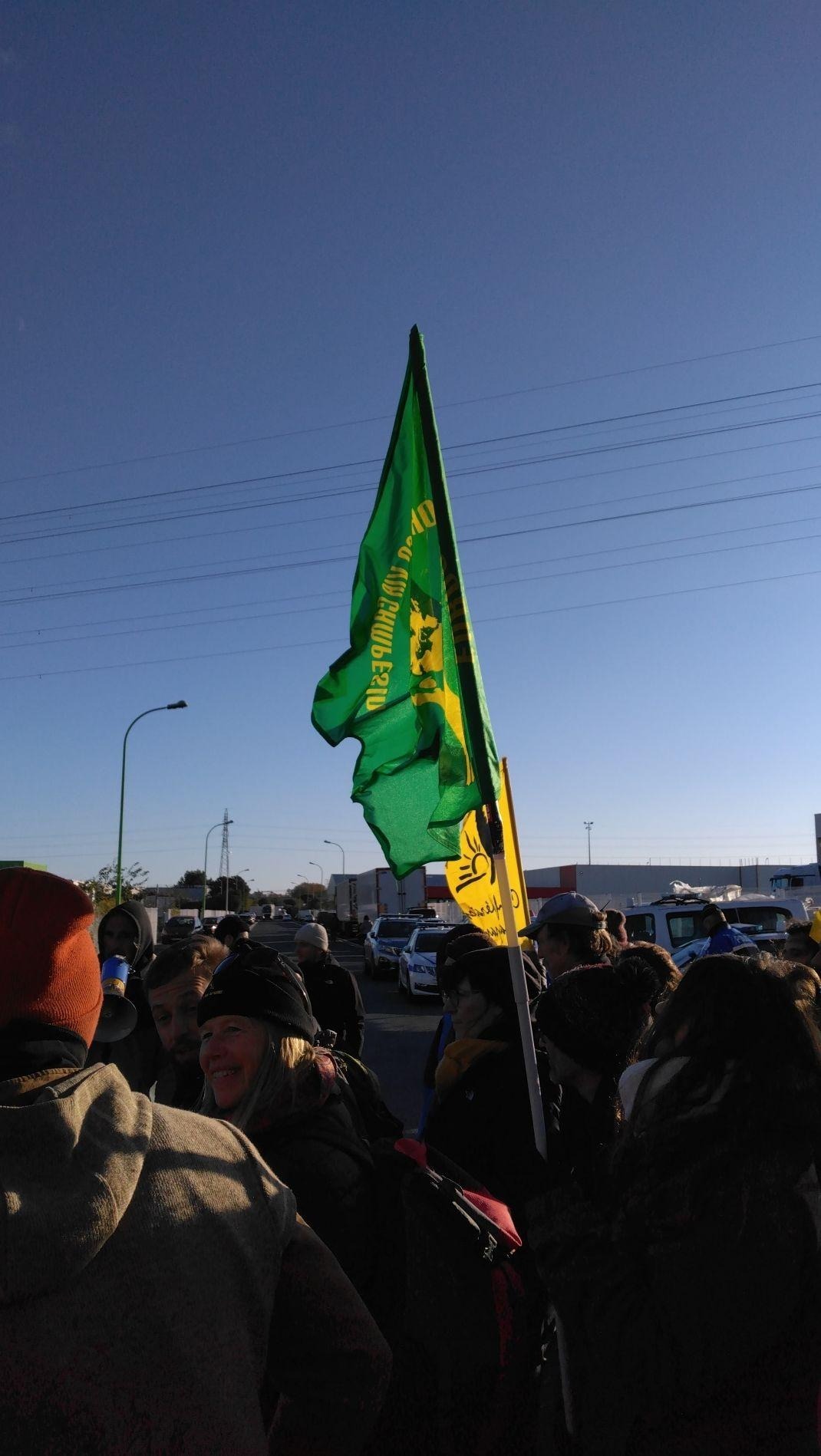

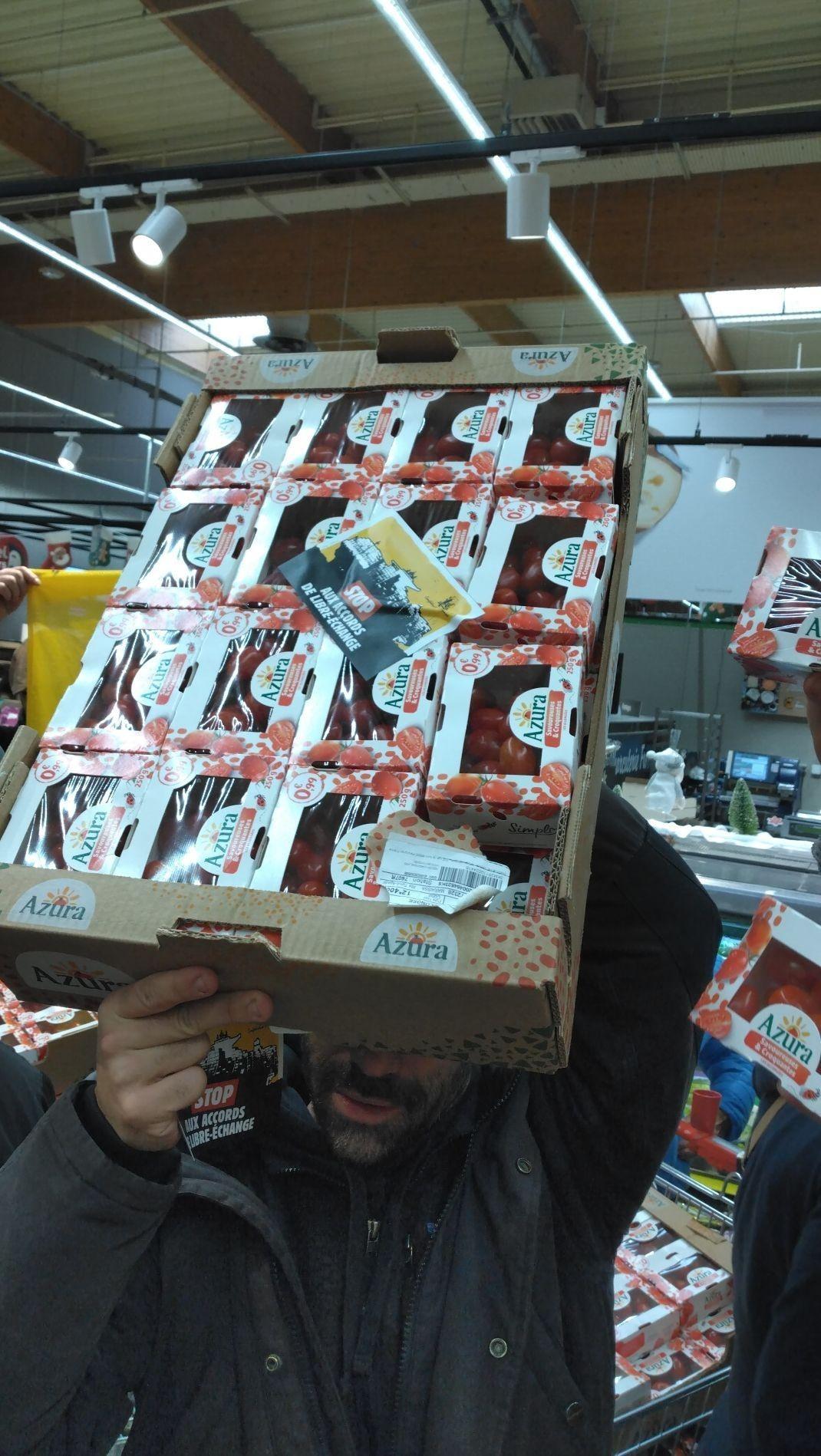
Since you're here....
WSRW’s work is being read and used more than ever. We work totally independently and to a large extent voluntarily. Our work takes time, dedication and diligence. But we do it because we believe it matters – and we hope you do too. We look for more monthly donors to support our work. If you'd like to contribute to our work – 3€, 5€, 8€ monthly… what you can spare – the future of WSRW would be much more secure. You can set up a monthly donation to WSRW quickly here.
Report: EU consumers unwittingly supporters of occupation
The WSRW report ‘Label and Liability’ documents how produce from the controversial agro-industry in the occupied territory, ends up in the baskets of unaware EU customers.
WSRW report reveals massive agri-industry in occupied Western Sahara
The new WSRW report ‘Conflict Tomatoes’, launched today, reveals massive growth in the Moroccan agriculture industry in occupied Western Sahara and its trade to the EU.
EU’s labelling chaos already hitting supermarkets
A packet of cherry tomatoes sold this week in a French supermarket illustrates the confusion triggered by the European Commission’s rushed attempt to adapt EU consumer and trade rules to Morocco’s claims over occupied Western Sahara.
These are the MEPs who voted for ignoring the CJEU
187 Parliamentarians voted to ignore the ruling of the CJEU, the interests of EU farmers, the rights of the EU consumers and the aspirations of the Saharawi people. Here they are.


